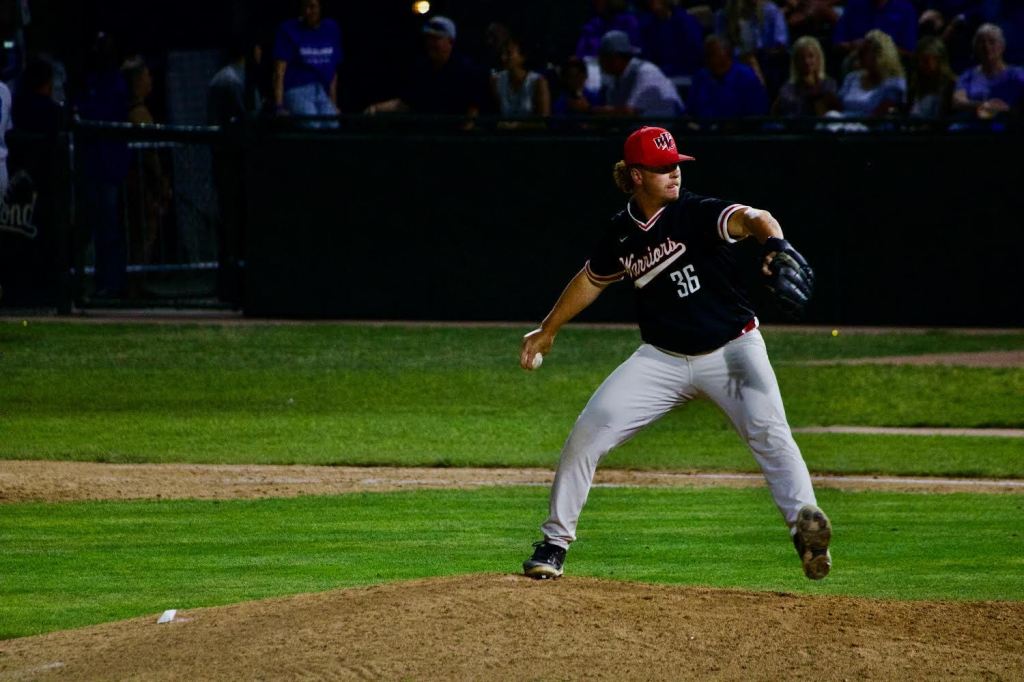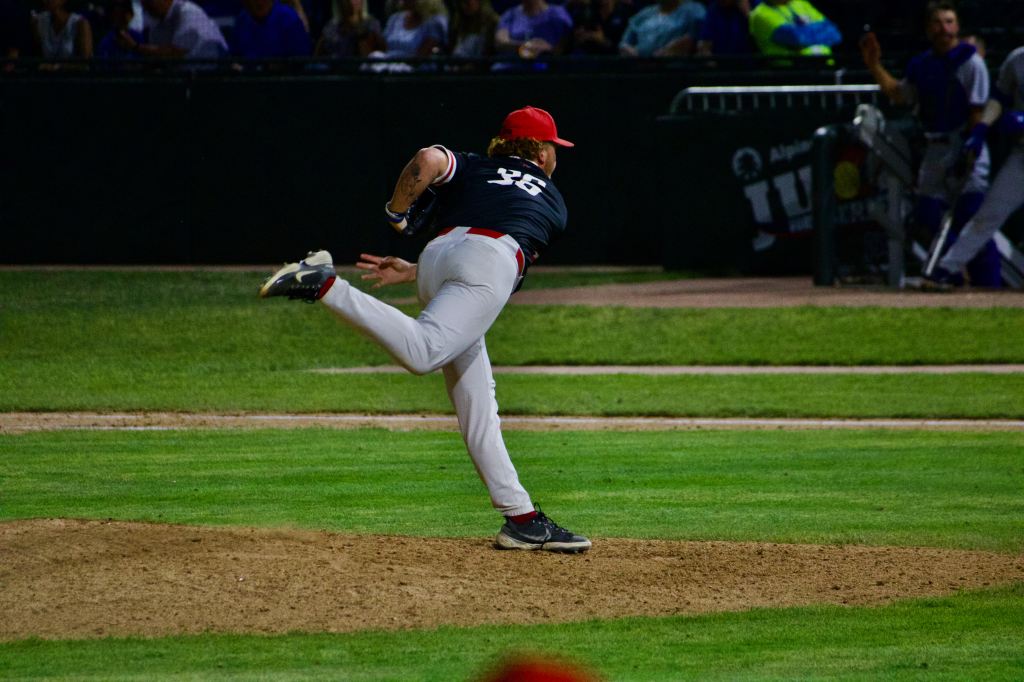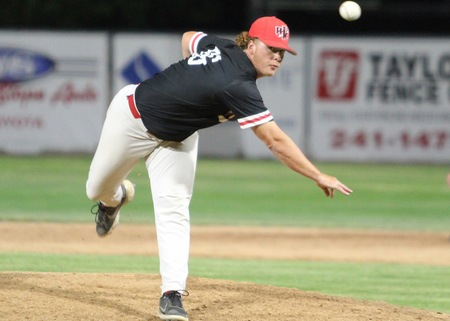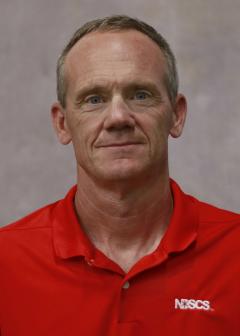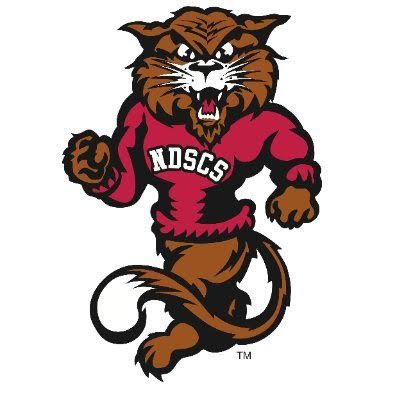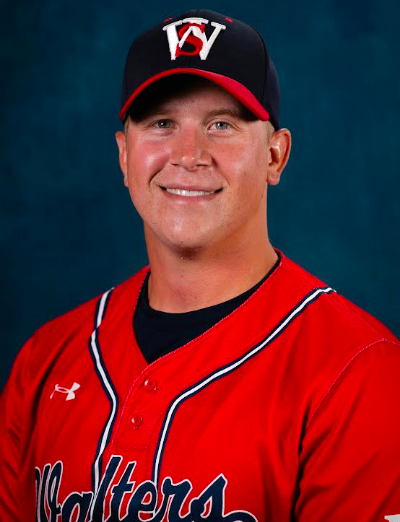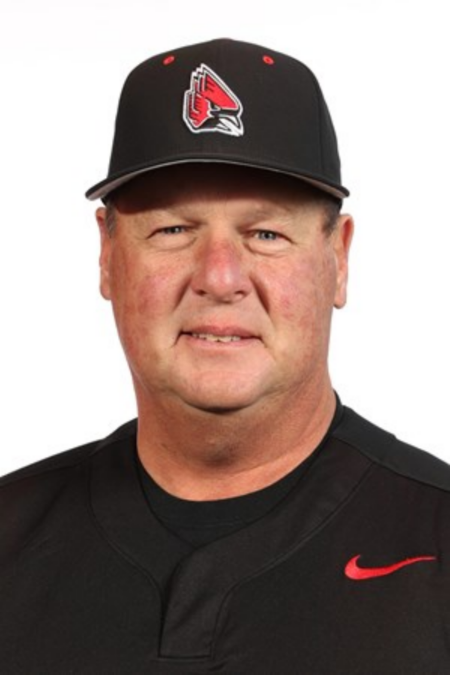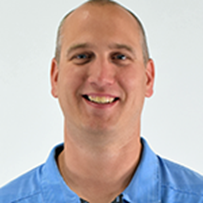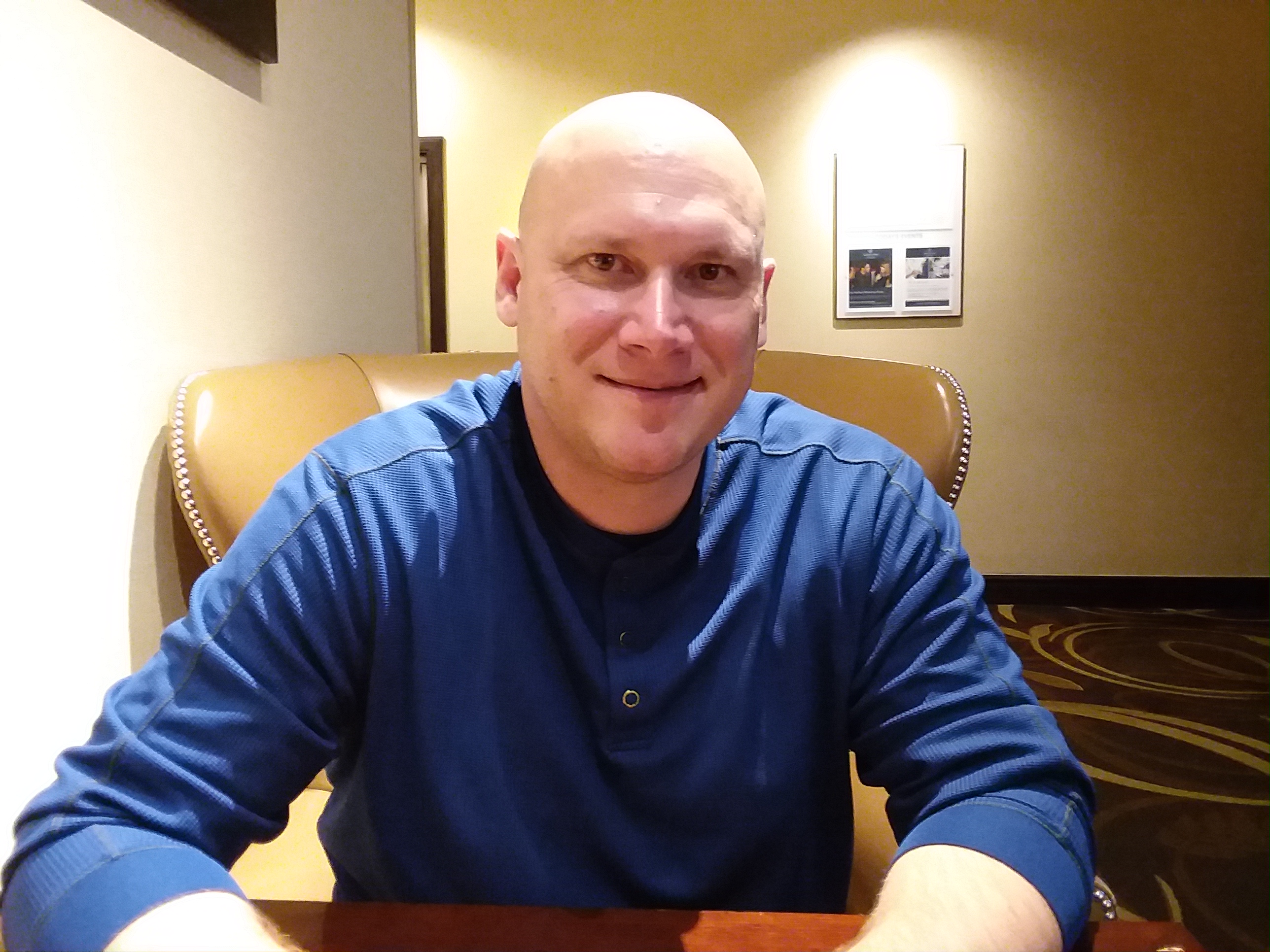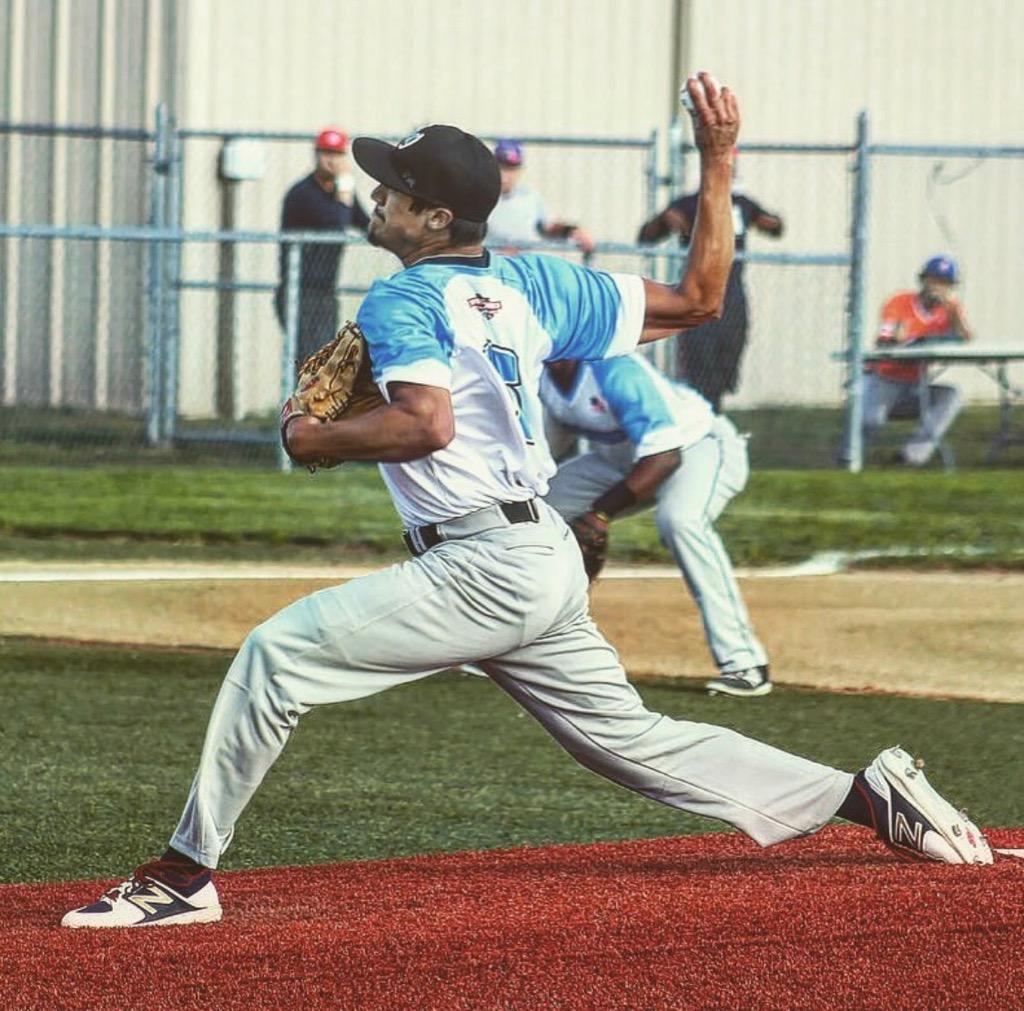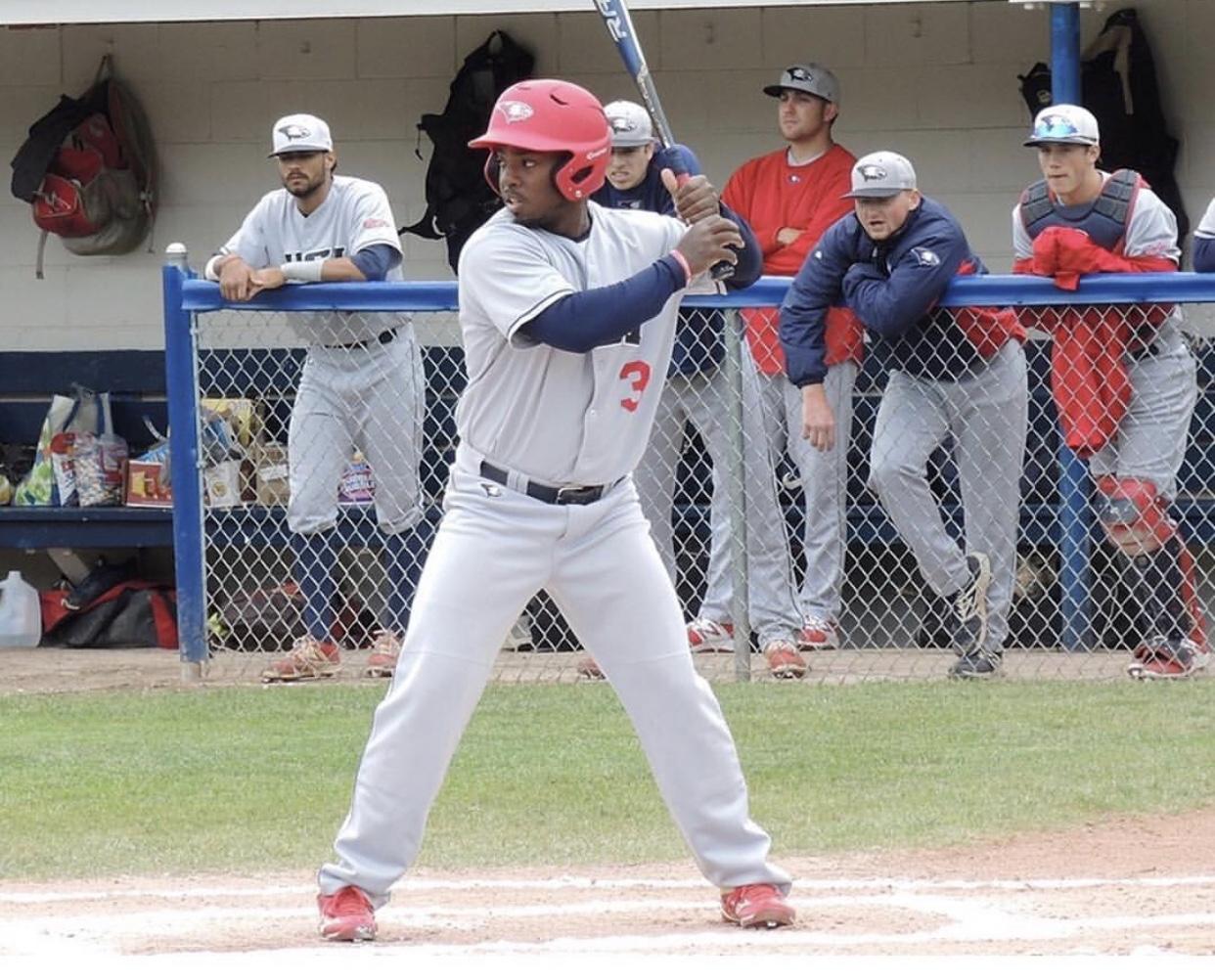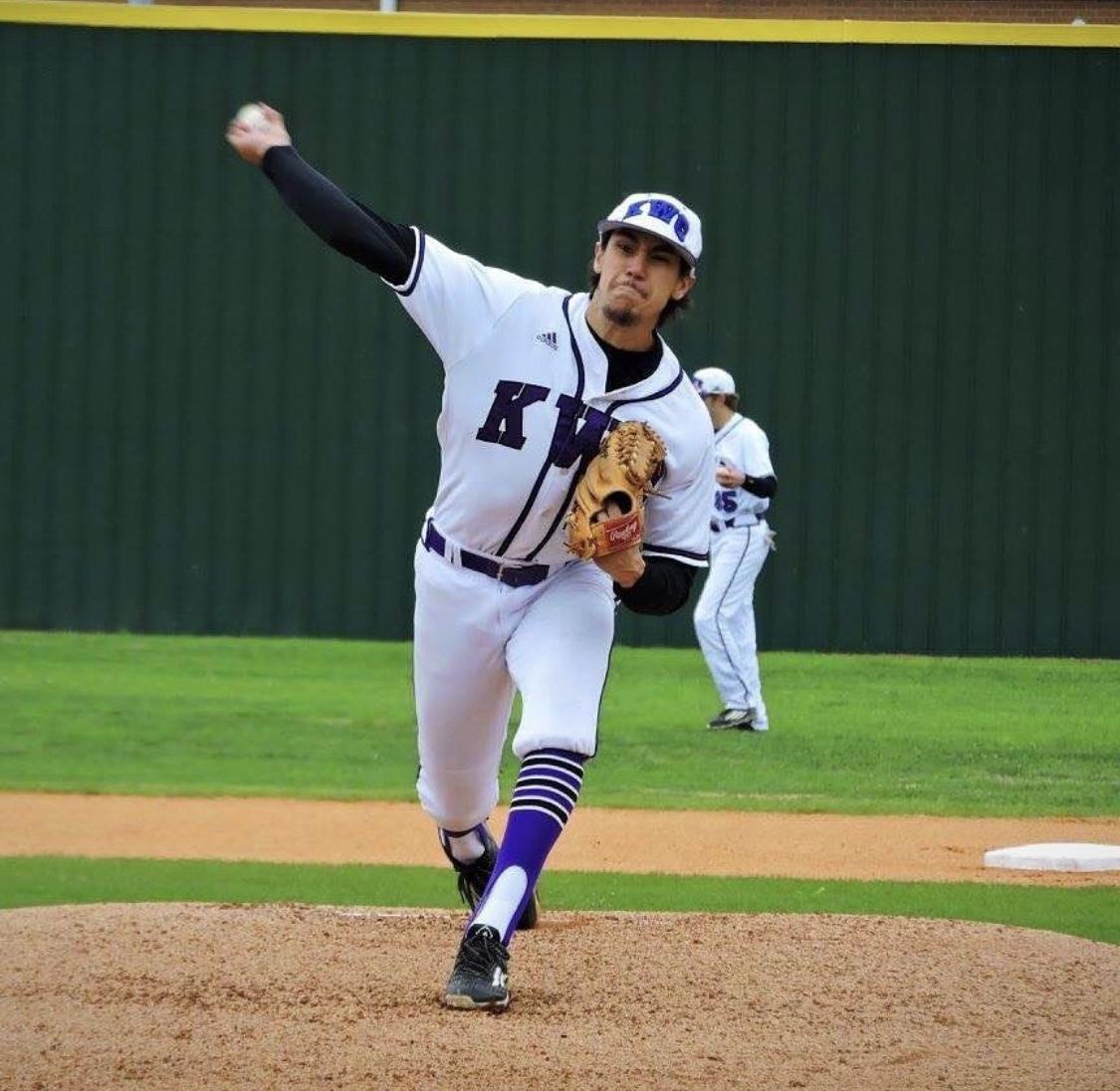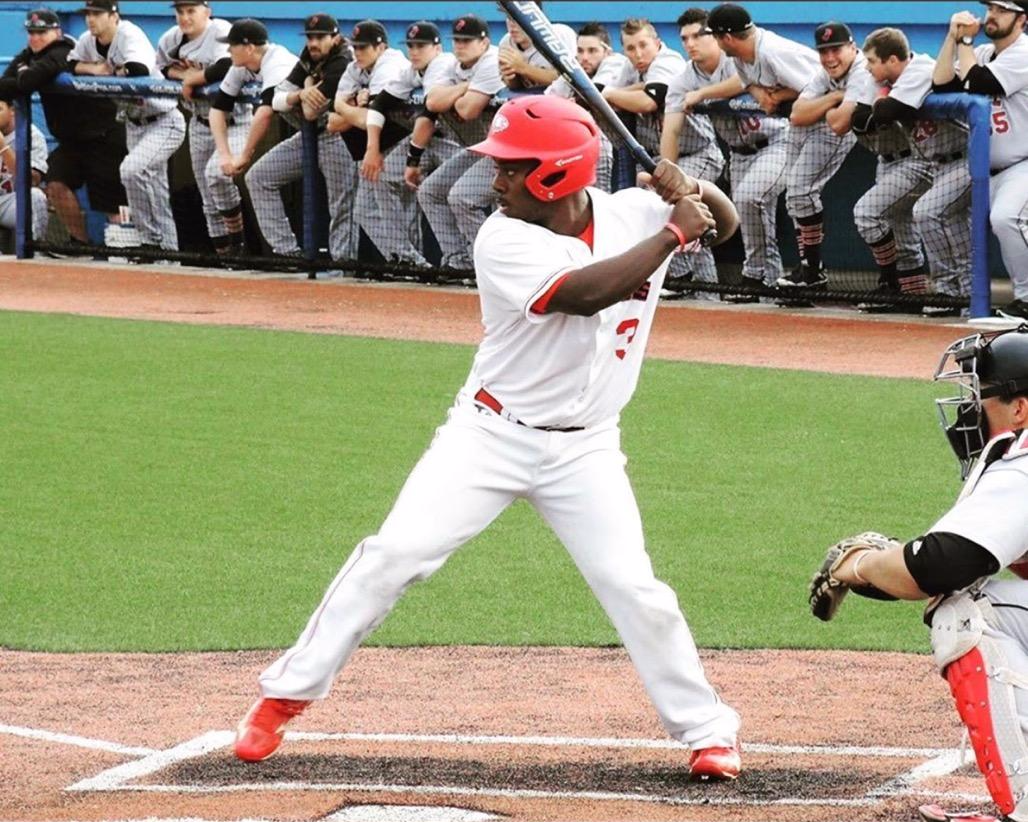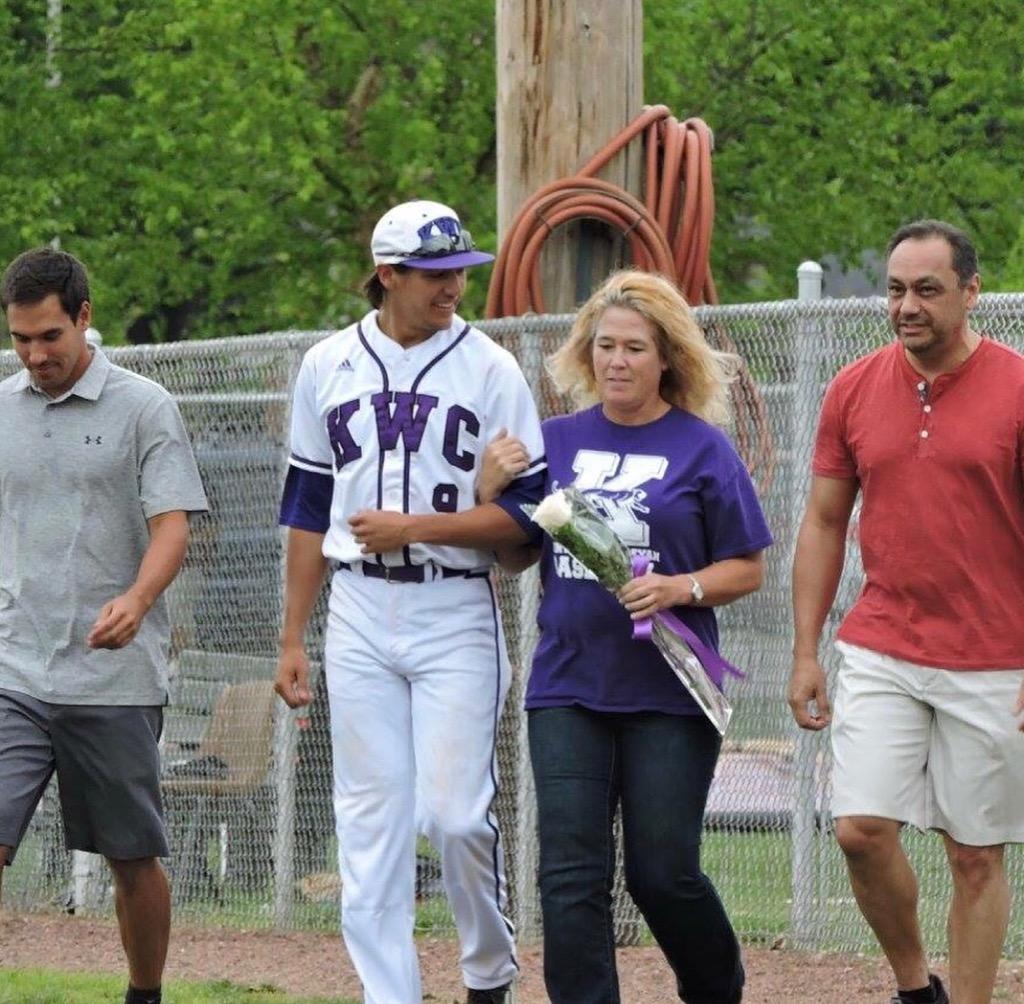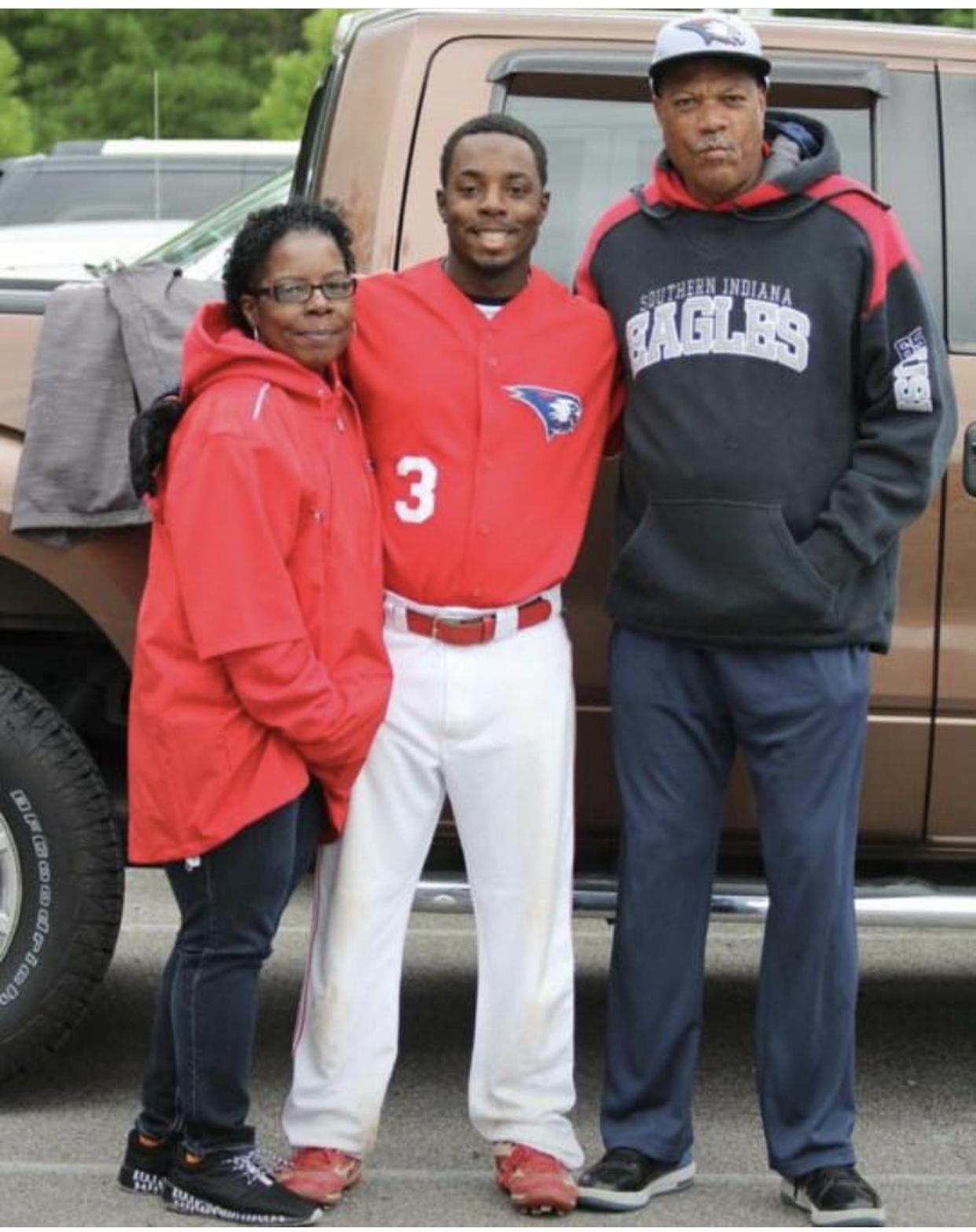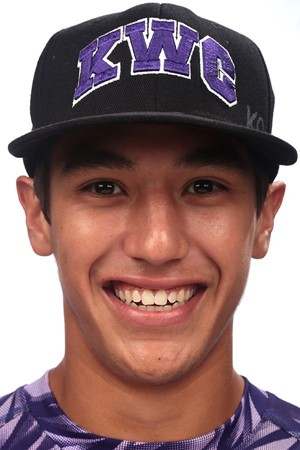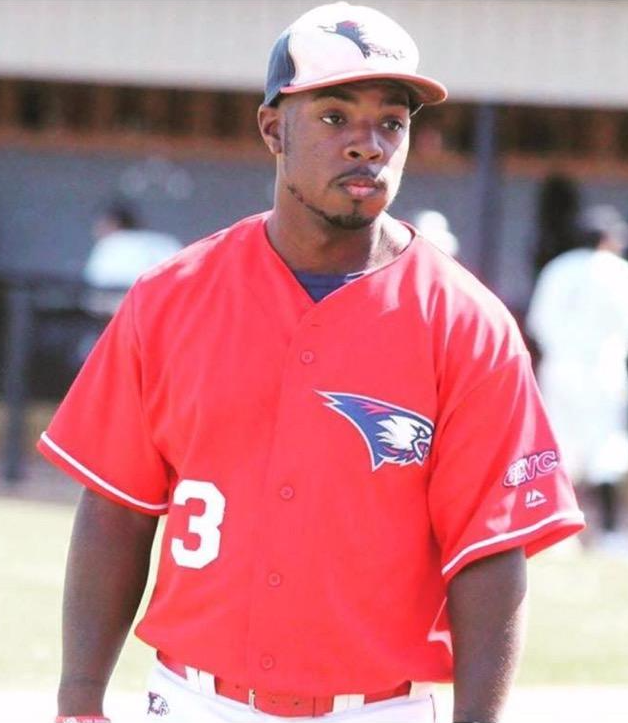
BY STEVE KRAH
Matt Wollenzin came back for his second stint as a University of Evansville baseball assistant in the summer of 2022 and guided Purple Aces hitters in 2023.
Wollenzin, who was on the UE staff in 2016 and 2017 guiding catchers and helping with hitters, the approach in 2024 will remain much the same.
“We want our guys to understand what pitches they can hit well, what pitches they can do damage on and what pitches they struggle with,” says Wollenzin, 32. “We want to hit strikes hard. We’re firm believers that the better the strike (zone) discipline the more you’re going to get on-base and more you’re going to be able to drive the baseball and do damage.
“Mechanically, everyone has a different skill set and a different set of strengths and weaknesses. We talk a lot about timing. We want to be waiting on fastballs. If we can hit the heater, that’s when we’re at our best.”
Wollenzin has his players working on these things using a steady mix of feel-good and situational batting practice and more-difficult game-like conditions that put hitters in compete mode. There’s also front toss and tee work.
New to the program is a Spinball iPitch Smart Pitching Machine that can be set up for the exact pitch metrics the team will face.
“That’s been a huge deal for us,” says Wollenzin. “We’ve been using the Driveline Baseball Smash Factor Balls with that. In-season, you can show them a 95 mph fastball. But the guys are going to blow up their hands if they use it all the time (using regular baseballs). It’s the same ball flight (with Smash Factor Balls) and they’re a little nastier from a stuff standpoint.”
Video is also a big part of the equation. Hitters can view all their at-bats from multiple angles.
“We preach to the guys to watch the guys in the big leagues, compare it to what you’re doing and just be students of the game,” says Wollenzin. “The more you watch what’s happening it’s going to make the adjustments that are necessary.”
The 2023 Evansville squad went 37-24 overall and 15-12 in the Missouri Valley Conference and hit .254 as a team with 81 home runs, 14 triples, 95 doubles, 337 runs batted in, 363 runs scored and a .796 OPS (.364 on-base percentage plus .432 slugging average). UE hitters walked 312 times and struck out 500 over 2,059 at-bats.
“I wouldn’t say we’re OK with striking out by any means,” says Wollenzin. “That can kill a lot to innings and take the pressure off the defense. We want to apply pressure at all times. At the same time, it is going to happen when you hit for a lot of power.
“This year we’ve keyed in on cutting that down a little bit. We’re trying to take away from the boom-or-bust mentality as an offense. We just want to swing at good pitches.”
In his graduate season in 2023, Eric Roberts (Hamilton, Ohio) hit .295 with 21 homers, 58 RBIs and a .622 slugging average while earning all-MVC and American Baseball Coaches Association/Rawlings All-Midwest Region first team honors.
Roberts is not back in 2024, but a number of top Aces return, including all-conference picks Chase Hug (.311/14/55; .576) and Kip Fougerousse (.288-13-47; .496) plus Simon Scherry (.267-3-23; .379), Brent Widder (.238-5-28; .378), Ty Rumsey (.232-8-16; .389), Brendan Hord (.208-5-30; .360) and Mark Schallenberger (.209-4-13; .345).
Hug (a graduate of Pike High School in Indianapolis), Widder (Sheboygan, Wis.), Hord (Lexington, Ky.) and Schallenberger (St. Louis, Mo.) are grad students, Fougerousse (Linton-Stockton) and Scherry (Heritage Hills) seniors and Rumsey (Evansville North) a junior in 2024.
Wollenzin says Hug, Widder and Schallenberger were not in the peak of health in 2023.
“All of those guys who were not quite themselves last year can combine to make up for the loss of Eric Roberts in the lineup,” says Wollenzin.
The coach reports that fall workouts were productive.
“We tried to replicate the spring season as best as we could from a practice and game standpoint, which means Mondays off, practice Tuesday, Wednesday and Thursday and intrasquads on Friday, Saturday and Sunday.”
Evansville saw three opponents in the fall — Wabash Valley College, University of Southern Indiana and the Toronto Mets.
Wollenzin said the regular hitters showed out against the first two foes and other players were able to get in the lineup in against the foreign opponent.
“I think we’re going to have some serious depth that we didn’t necessarily have last year,” says Wollenzin. “We’ve got a lot of confidence in 12 to 14 position players.”
Post-holiday break classes resumed at Evansville on Monday, Jan. 8 and the Aces saw their first live at-bats this past weekend.
Wollenzin is part of a staff that features Wes Carroll as head coach, Tyler Shipley as pitching coach/recruiting coordinator, Griffin McCormick as volunteer assistant and Jarrett Blunt as graduate assistant.
“(Carroll) just brings a great environment,” says Wollenzin, who is in his second go-round with the Aces field boss. “Guys want to show up and work every single day. He’s continuously gotten better at his own craft, too.
“He lacks complacency as a coach. He tries to find ways to help guys whether on the analytic or culture side of things. He cares a lot about his players and there’s something to be said for that.”
Wollenzin grew up in the Denver suburb of Lakewood, Colo., and graduated from Green Mountain High School, where he was an all-stater, in 2010. His head coach at the end of his Rams days was Brad Madden.
“When it’s a fun competitive environment and you were around people who are just as much as you do you’re going to greater interest in the sport and all the nuances of it,” says Wollenzin. “Coach Madden created an environment that made me want to do this at the next level and make me want get into it as a career.
“Every stop along the way I’ve been around good people who cared about you and the game and helping you get where you wanted to be.”
As a lefty-swinging catcher, Wollenzin played at Austin Peay State University in Clarksville, Tenn., (2011-14), earning National Collegiate Baseball Writers Association Freshman All-American mention, and served one season as a graduate assistant (2015) with Gary McClure as Governors head coach.
“Win at all costs,” says Wollenzin of McClure’s approach. “He was the ultimate competition. The guy loved to win. He would do anything to win. We brought home three (Ohio Valley Conference) championships. I have nothing but great things there with Coach McClure.”
Wollenzin earned a Healthcare Management undergraduate degree and master of Healthcare Administration from Austin Peay, the latter in 2016.
During his first time at Evansville, Wollenzin spent his summers in Mankato, Minn., with the Northwoods League’s Mankato MoonDogs and was later the team’s manager.
He also joined the coaching staff at Bethany Lutheran College in Mankato (2018-22) — the last two years as associate head coach to Vikings head coach Ryan Kragh.
“He trusted me from Day 1 when he was the (manager) of the MoonDogs and with Bethany, too,” says Wollenzin of Kragh. “I could do my own thing.
“He gave me a lot of control. That’s where you learn a lot about yourself as a coach — what you do well and what you do not do well. If it wasn’t for him I don’t think I’d be where I am right now. I owe him a lot for that.”
Kragh valued relationships and so does Wollenzin.
“Players don’t care how much you know until they know how much you care,” says Wollenzin. “Although it’s cliche, it’s 100 percent true.
“It’s something I’ve tried to replicate in my coaching career.”
This past Thanksgiving, Wollenzin and Sarah Duwenhoegger got engaged with an eye on a wedding next winter. The couple met in Mankato in 2019.




